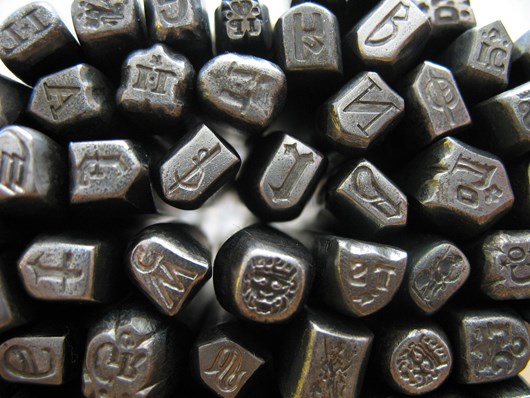Contact the Citizens Advice consumer helpline (formerly known as Consumer Direct) if you need more help with a consumer problem. This page on their website has contact information, or a form you can submit about the issue.

Assistance to Trading Standards
We offer seminars and educational programs for Trading Standards Officers as well as providing inspection assistance, testing and expert witness statements for test purchases and seizures thought to flout the Hallmarking Act. This covers:
- Expert witness statements relating to test purchases, seizures or customer complaints for interviews and court hearings
- Professional back up services for Trading Standards premises inspections
- Product testing for precious metal content and fitness for purpose and Section 9 Statements
In addition, in partnership with the other three UK Assay Offices, we fund the Touchstone Awards presented by the British Hallmarking Council (BHC). The annual Award was launched in 2012 to encourage education and enforcement of hallmarking and to reward the best initiative relating to hallmarking.
Trading Standards Departments should contact us for further information.
For more information on our involvement with Trading Standards, download our Expert Services brochure here.

Dave Merry receiving the clothing of the Livery with the Clerk of the Company, Sir David Reddaway


Rings by Kyosun Jung
Consumer Complaints
If you are a consumer seeking general information on hallmarking or need particular specialist advice to help resolve a dispute Citizen's Advice can point you in the right direction.
For potential criminal breaches for which Trading Standards may consider enforcement action, Citizens Advice would refer those cases directly across to them.
Q&A with Dave Merry
Dave Merry was the longest serving member of our team - he retired in summer 2019. He was Head of Training, Education & Trading Standards Liaison, and Fellow of the Institute of Professional Goldsmiths. He was also an Honorary Member of the Chartered Trading Standards Institute - one of only six-non Trading Standards Officers to be given the membership. He regularly filmed for television shows to educate on consumer protection.
In 2017 we asked him some questions to help explain the role of Trading Standards in the hallmarking process.
Is a lot of fake gold, silver, platinum or palladium jewellery being sold illegally in the UK today?
Yes there is! There are literally tonnes being sold in the UK every day. Trading Standards try to control the flow coming in from the Far East, and often are alerted to fakes driven by consumer complaints. Unfortunately this influx slowly impacts on the real market.
So would a hallmark be the first thing a customer should check for when they’re buying jewellery?
Absolutely! Always ask if its hallmarked - It’s your guarantee. Also, in a retail outlet, look for the “Dealers Notice” which the British Hallmarking Council produces for jewellers and silversmiths and carries its own legislation. This is a sign which should be displayed by law detailing UK hallmarking.
What about people shopping online? They cannot physically see the jewellery item to check for a hallmark. What can online shoppers do to ensure they’re getting the real deal?
Buy from a reputable source, if in doubt check with Trading Standards websites like Brand-i. You can also ask the retailer about their hallmarking of course.
What kind of tricks do jewellery forgers use to make their fake items look real? Is there a way for consumers to spot these forgeries?
Unfortunately there is no dead giveaway sign for the consumer to spot. The quality of metal cannot be judged by sight, touch, texture etc. Fakers can plate base metal in precious metal, and pass the whole thing off as precious. This is why the hallmark is so vital.
What about hallmarks, can they be faked? If so, how can you tell if a hallmark isn’t real?
Faking hallmarks is extremely rare. I’ve only seen them once in my 45 years – these were close copies of antique silver hallmarks. I’m pleased to say that that perpetrator has served time in prison! Counterfeit goods often carry generic marks to include symbols, numbers, pseudo marks – and this is confusing for the consumer who see marks, but not 'hallmarks'.
What about price? Can a suspiciously low price be an indicator of fake jewellery?
Yes, on certain auction sites. This is one of the early warning signs. If it’s too good to be true, it often is. Remember, all that glitters is not gold!
Do you have any other final advice or tips for our readers about fake jewellery and how to avoid purchasing it?
Buy from bona fide traders only, familiarise yourself with the UK hallmark (as per image), don’t be afraid to question the maker or retailer about their hallmarking. Our website is a great source of information where you can learn a lot! If you’re still in doubt, talk to an Assay Office or Trading Standards Office about your concerns.
